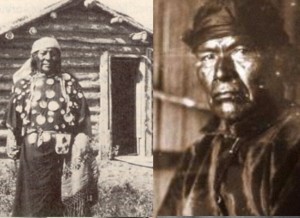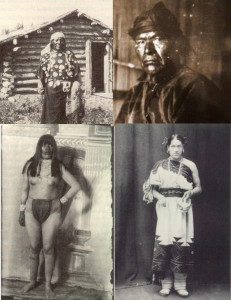
Originally published on Sept. 21, 2015 on Red Rising Magazine: http://redrisingmagazine.ca/two-spirit-people-body-sovereignty-and-gender-self-determination
As Cree people we understand that the nature of the cosmos is to be in balance and that when balance is disturbed, it must and will return.
Restoring balance
Two-spirit identity is one way in which balance is being restored to our communities. Throughout the colonial history of the Americas, aggressive assimilation policies have attempted to displace our own understandings, practices and teachings around sexuality, gender and positive relationships and replace them with those of Judeo Christianity. To recognize ourselves as two-spirit is to declare our connection to the traditions of our own people.
As a self-identifier, two-spirit acknowledges and affirms our identity as Indigenous peoples, our connection to the land, and values in our ancient cultures that recognize and accept gender and sexual diversity.
The recognition and acceptance of gender and sexual diversity is reflected in our languages, spirituality and cultures. Our Cree dialect does not include gender-distinct pronouns. Rather, our language is ‘gendered’ on the basis of whether or not something is animate (that is, whether or not it has a spiritual purpose and energy).
Cultural disruption and “Skirt Shaming”
Today some of our Elders and spiritual teachers have adopted and introduced understandings and practices and understandings that were not necessarily part of their own cultures prior to colonization and the imposition of Christianity. For example, a recent celebration in a community included a sweat lodge ceremony. When two-spirit and other participants arrived to take part in the ceremony, the person leading the ceremony demanded that some in the group change their clothing to conform with what he perceived their gender to be and added the warning that if he suspected that they had dressed inappropriate to their perceived gender, they would be required to prove their gender identity to him. In the face of this direct assault on their body sovereignty and gender self-determination, some people left the ceremony.. The role of Elders in our communities includes the sharing traditional teachings with youth that will help them understand their own experiences, including their expressions of gender identity and sexuality. However, in most of our Indigenous cultures where gender and sexual diversity were once accepted and valued, our traditional teachings, ways of being, spirituality, and languages were disrupted and displaced through the processes of colonization, Christianization and assimilation. The result (as the incident described above demonstrates) is that some of our own present-day cultural teachings and practices extend the continuum of violence that two-spirit people have been subject to since colonization began. “Skirt-shaming”, excluding, policing or shaming trans, two-spirit people and women because they are not wearing long dresses in ceremonial settings, is increasingly common and is a continuation of the continuum of violence.
Two-spirit people are frequently subject to interconnected homophobia, transphobia and misogyny, and in the larger society they are additionally subject to structural and individual racism and classism. This has had devastating impacts on the two-spirit community. The suicide rate for LGBTQ Indigenous youth is ten times higher than that of any other group. Thirty-nine percent of two-spirit women and 21% of two-spirit men have attempted suicide . In a recent study of transgendered and gender non-conforming Indigenous people, nearly one-quarter lived in extreme poverty, elevated rates of HIV were found, and more than half of respondents (56%) had attempted suicide . It is imperative that Elders and others consult with or rely on Two-Spirit leaders for teachings and direction regarding gender and sexual diversity.
Coming in
There is much work to be done, then, to undo the work that has been done upon us. When we call ourselves two-spirit people, we are proclaiming sovereignty over our bodies, gender expressions and sexualities. “Coming in”does not centre on the declaration of independence that characterizes ‘coming out’ in mainstream depictions of the lives of LGBTQI people. Rather, coming in is an act of returning, fully present in our selves, to resume our place as a valued part of our families, cultures, communities, and lands, in connection with all our relations.
Indigenous sovereignty over our lands is inseparable from sovereignty over our bodies, sexuality and gender self-expression.
********************************************
1. For the history of the term two-spirit please see http://www.twospiritmanitoba.ca/about.html
2. K. C. Fieland, K. L. Walters, & J. M. Simoni (2007). “Determinants of Health Among Two-Spirit American Indians and Alaska Natives,” pp. 268-300 In I. H. Meyer, & M. E. Northridge, The Health of Sexual Minorities (Springer US).
3. National Center for Transgender Equality (2012). “Injustice at Every Turn: American Indian and Alaskan Native respondents in the National Transgender Discrimination Survey” (Washington, DC).
4. Alex Wilson (2008). “N’tacimowin inna nah’: Our coming in stories.” Canadian Women Studies, 26 (3-4): 193-199.